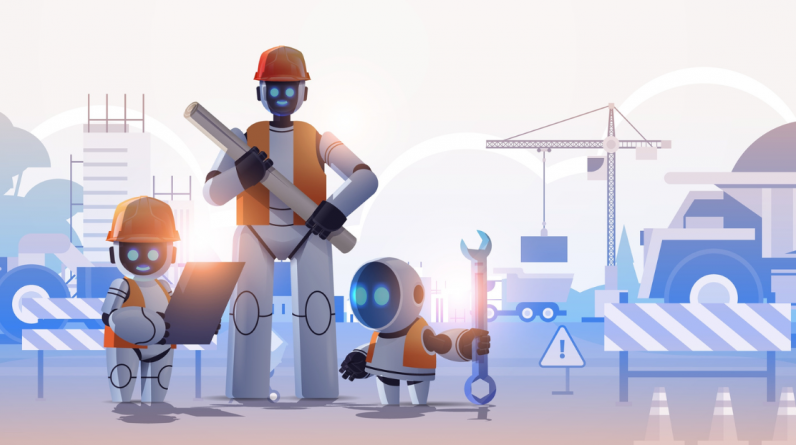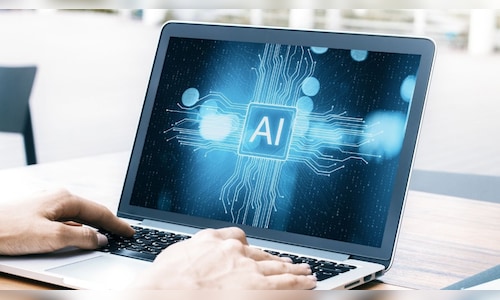
SUMMARY
The construction industry is witnessing a paradigm shift, driven by advancements in artificial intelligence (AI) and machine learning (ML)
As per a recent report by McKinsey, the construction industry is worth more than $10 Tn a year, equivalent to 13% of the world’s GDP
Building Information Modeling (BIM) is at the heart of AI-driven construction management
In today’s dynamic landscape of construction management, where efficiency and innovation are paramount, the integration of artificial intelligence(AI) is revolutionising traditional construction practices by offering novel solutions, optimising designs and streamlining decision-making processes, thus playing the role of a game-changer.
The construction industry which was initially touted and traditionally characterised as complex processes with fragmented communication is suddenly changing for good with the advent of AI & building information modeling (BIM) and is poised for a revolutionary transformation.
In the forefront of the AI revolution, only a few sectors stand as prominently poised for transformation as construction management. With its immense scale and economic significance, the construction industry is witnessing a paradigm shift, driven by advancements in artificial intelligence (AI) and machine learning (ML).
This revolution is not merely about adopting new technologies; it’s about fundamentally altering how one plans, executes, and manages construction projects.
As per a recent report by McKinsey, the construction industry is worth more than $10 Tn a year, equivalent to 13% of the world’s GDP. Just by digitisation and automation, the market capitalisation can be raised by a staggering $1.6 Tn a year, making the construction sector one of the largest industries in the world economy.
From predictive analytics to robotics process automation (RPA), AI is reshaping every facet of construction management, paving the way for enhanced efficiency, productivity, and risk mitigation.
By leveraging AI Metrics integrated with IoT devices, construction management companies can also efficiently predict equipment breakdowns and address issues, resulting in significant time and cost savings.
The Role Of AI & ML In Construction Solutions
AI and ML technologies are further helping revolutionise construction management by providing actionable insights and optimising processes at every stage of a project lifecycle.
From conceptualisation and designing layouts to construction and maintenance, AI-powered solutions are streamlining operations and improving decision-making.
For instance, AI algorithms can analyse vast amounts of data to optimise project schedules, allocate resources efficiently, and identify potential risks before they escalate.
The models can learn from historical project data to predict project outcomes, enabling stakeholders to make informed decisions and mitigate delays and cost overruns.
Building Information Modeling (BIM)
Building Information Modeling (BIM) is at the heart of AI-driven construction management. BIM leverages AI and ML algorithms to create digital representations of physical assets, enabling stakeholders to visualise, simulate, and analyse construction projects in a virtual environment.
By centralising project data and facilitating collaboration among stakeholders, BIM enhances coordination, reduces rework, and improves project outcomes.
AI-powered BIM solutions can automate clash detection, optimise building designs for energy efficiency, and simulate construction sequences, revolutionising the way construction projects are planned and executed.
Role Of Robotics Process Automation (RPA)
Robotics process automation (RPA) is another transformative technology making waves in construction management. By automating repetitive and rule-based tasks, RPA frees up valuable time for construction professionals to focus on more strategic activities.
In construction management, RPA can automate procurement processes, invoice processing, and documentation management, reducing errors and accelerating project timelines.
By seamlessly integrating with existing systems and software, RPA enhances operational efficiency and drives cost savings across construction projects.
Risk Mitigation And Predictive Analytics With AI
One of the most significant advantages of AI in construction management is its ability to mitigate risks and uncertainties. By analysing historical project data and real-time sensor data, AI algorithms can identify potential risks and predict their likelihood and impact on project outcomes.
From weather-related delays to supply chain disruptions, AI-powered predictive analytics enable stakeholders to proactively address risks and implement mitigation strategies.
By leveraging AI-driven risk management solutions, construction companies can minimise project delays, reduce costs, and enhance stakeholder confidence.
As per another finding by McKinsey, the implementation of predictive maintenance strategies can further reduce machine downtime by 30-50% and increase its lifespan by 20-40%
Challenges
As we stand at the cusp of AI transformation, even though the opportunities are immense and the innovation potential is boundless, we are still surrounded by roadblocks like data interoperability, standardisation, and workforce adaptation which need to be addressed and combated along the journey to have a smooth yet speedy growth path.
Road Ahead
As AI continues to advance, its role in construction management will only grow in significance. From autonomous construction vehicles to augmented reality-enhanced project visualisation, the possibilities are limitless.
However, realising the full potential of AI in construction management requires a collaborative effort from all stakeholders. Construction companies must invest in AI talent, infrastructure, and training to effectively integrate AI into their operations.
Governments and regulatory bodies must establish frameworks and standards to ensure the ethical and responsible use of AI in construction. By embracing AI-driven innovation, the construction industry can unlock new levels of efficiency, sustainability, and resilience, shaping the cities and infrastructure of tomorrow.





